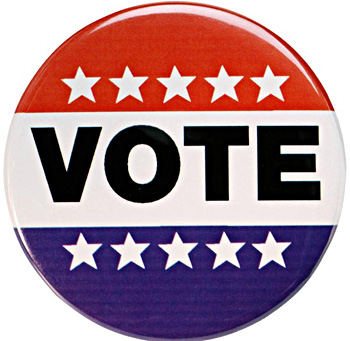I have a longstanding belief that a liberal democracy is basically in good shape if it guarantees three rights:
- Freedom of speech/press.
- The right to a fair and speedy trial.
- The right to vote.
I don’t mean to denigrate other important rights. Freedom of religion is important, but plenty of free countries operate just fine with state religions. Freedom of assembly can probably be mandated by law. Warrants for searches are necessary, but again, could probably be mandated by law. A ban on slavery is important,  but we already have it, and it’s not really a pressing issue in the 21st century anyway. And lots of democracies take wildly different views on the right to bear arms. The bottom line is that all these things can be in the Constitution, but if they’re not they probably don’t preclude a pretty free society.
but we already have it, and it’s not really a pressing issue in the 21st century anyway. And lots of democracies take wildly different views on the right to bear arms. The bottom line is that all these things can be in the Constitution, but if they’re not they probably don’t preclude a pretty free society.
The first two rights on my list are already enshrined in the Constitution (speech and press freedom in the First Amendment; fair trials in the Fifth through Eighth Amendments). The third, for generally disgraceful reasons, isn’t. But for some reason, among the dozens of pet amendments that various interest groups propose even though they’re mostly pie in the sky, this one gets almost no attention. Why not?
Don’t worry too much about the precise wording of a voting rights amendment. Here’s a proposal from Reclaim Democracy! that originated with Jesse Jackson:
All citizens of the United States, who are eighteen years of age or older, shall have the right to vote in any public election held in the jurisdiction in which the citizen resides. The right to vote shall not be denied or abridged by the United States, any State, or any other public or private person or entity, except that the United States or any State may establish regulations narrowly tailored to produce efficient and honest elections.
Reps. Pocan and Ellison have recently proposed a shorter version:
Every citizen of the United States, who is of legal voting age, shall have the fundamental right to vote in any public election held in the jurisdiction in which the citizen resides.
Maybe you’d want to add some further protections: change voting day to voting week; mandate early voting; make changes to redistricting rules to better guarantee that all votes count equally. I’m agnostic about this.
Needless to say, this would open a can of worms. Basically, anyone who shows up to vote is assumed to have the right to vote unless the government has actively put them on a list of non-voters. Possibly some kind of ID would be required: maybe a Social Security card or a national ID card. Perhaps everyone would be required to enroll for voting on their 18th birthday, and would be given a card that identifies them as a voter. They could do it at the same time they enroll with Selective Service (just as soon as women are added to Selective Service requirements).
There would be exceptions. Can prisoners vote? The Supreme Court has already ruled that prisoners have limited access to free speech rights. They obviously have no right to freedom of assembly, and the right to bear arms has been curtailed with extreme prejudice. This would almost certainly be the case with voting rights as well, though it could easily be written into the text of an amendment if it was considered important enough to spell out specifically.
So why not do it? It seems like a pretty populist idea for a Democratic presidential candidate. How about it, Hillary? She already supports automatic voter registration at age 18, and that’s a short jump to a constitutional amendment.

















